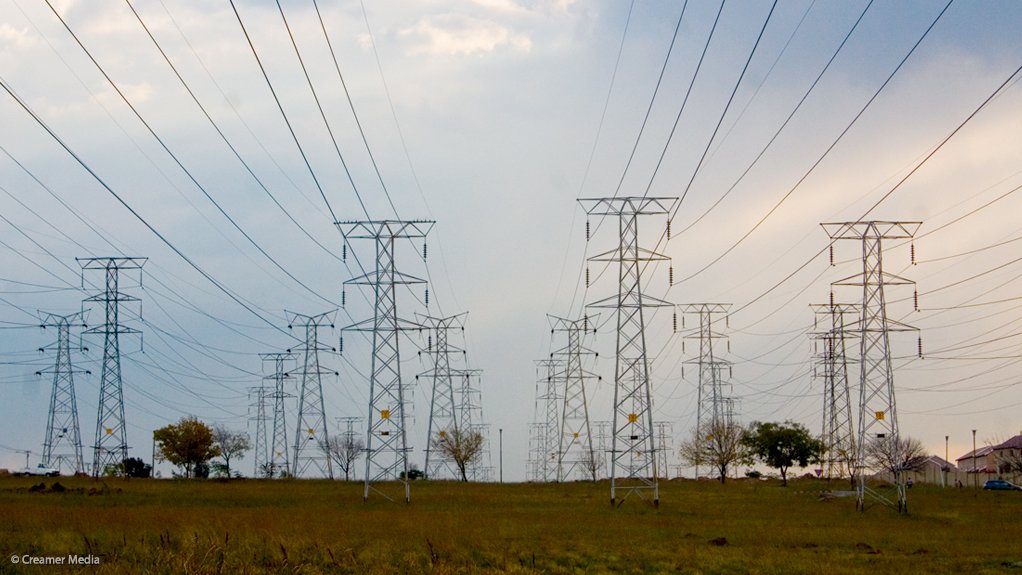- ELECTRICITY PRICE DETERMINATION RULES0.88 MB
The National Energy Regulator of South Africa (Nersa) has approved far-reaching changes to the way electricity tariffs will be set in future, but it could still take some time before the rules are fully implemented.
Nersa approved the new Electricity Price Determination Rules (EPDR) on December 14, following a consultation phase, which was initiated in 2021 to find an alternative to the current multiyear price determination (MYPD) framework that has been used to set Eskom tariffs since 2006.
Head of communications Charles Hlebela tells Engineering News that the decision to revamp the approach to setting tariffs was informed by changes under way in the electricity supply industry, including the emergence of new participants in generation and trading and the unbundling of Eskom.
In addition, the regulator had grown increasingly concerned about the steep rise in tariffs over the past number of years that, alongside a dismal industry performance, had undermined credibility and sent poor price signals.
“The objective was to develop interventions to make the pricing framework more fit-for-purpose in an increasingly disaggregated industry and to drive efficiencies in both the use and production of electricity for improved price stability,” Hlebela explains.
The move to a competitive industry, he argues, also requires a tool that focuses on the industry as a whole and not only a single licensee.
Under the EPDR, tariffs will no longer be aggregated and are instead determined for each licensed activity along the value chain – including generation, transmission, distribution and trading – based on the fixed costs, variable costs and customer-specific costs allowed by the regulator.
Nersa argues that such activity-based costing (ABC) should be no more data-intensive than the current methodologies, as licensees collect costing and financial data on an ongoing basis.
ABC, it adds, simply requires the licensees to package the same data with a standardised set of regulatory accounts, before the allowable revenue calculations are undertaken.
The proposed outcome is what Hlebela describes as being “unbundled and cost reflective tariffs”.
Nersa is currently aiming to implement the EPDR from the 2025/26 financial year but acknowledges that transitioning from the MYPD poses challenges and timing will depend on the readiness of licensees and other effected stakeholders.
Implementation also requires the finalisation of the methodology to be used by licensees to prepare a tariff submission, and no timeline has as yet been set for the publication of such a methodology.
In approving the EPDR, Nersa outlined both a Plan A and a Plan B for implementation, with Plan B allowing for the use of the MYPD methodology, with certain conditions.
Eskom has stated previously that it takes two years to prepare a revenue application under the MYPD and has, thus, already started preparing its submission for the 2025/26 financial year under the existing methodology.
In addition, in July 2022 the High Court confirmed that any revenue application needed to be made in accordance with an existing methodology, which in the case of the EPDR still must be finalised.
Therefore, Eskom is likely to argue that it is not practical to implement the EPDR in 2025, given that its submission would have to be made this year to allow Nersa time to conduct the public consultations and hearings required for the approval of municipal tariffs by March 15, 2025, as stipulated by the Finance Minister.
Nevertheless, Hlebela indicates that the regulator is eager to transition to the EPDR, while highlighting that the EPDR implementation plan “provides for a period of support to licensees and affected stakeholders to transition to the new pricing rules”.
He notes, too, that Eskom’s September 2005 application for revenue for the first two years of the MYPD, from 2006 to 2008, had been based on principles and that the full-blown methodology was implemented only for the last year of the pricing period to 2009.
EMAIL THIS ARTICLE SAVE THIS ARTICLE ARTICLE ENQUIRY
To subscribe email subscriptions@creamermedia.co.za or click here
To advertise email advertising@creamermedia.co.za or click here











